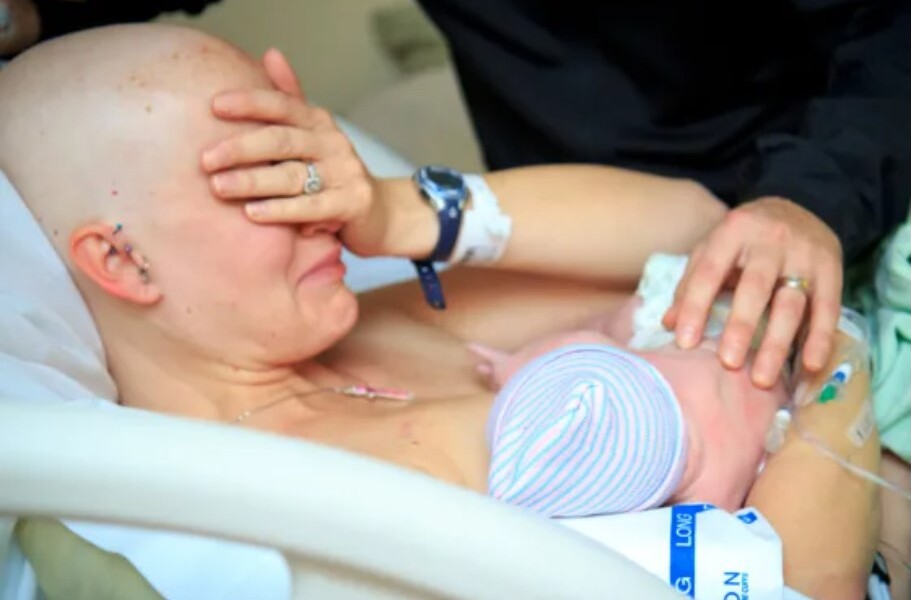Calls for Ukraine
Calls for Europe
Calls for USA

Results from two international studies presented at the ESMO Congress 2024 that included participants with germline BRCA mutation and hormone-receptor-positive breast cancer showed that women who breastfed after breast cancer treatment had no increased risk of recurrence or development of new breast tumors.
Breast cancer is significantly influenced by hormones, and given that pregnancy and breastfeeding involve a cascade of hormonal changes, there are questions about their safety after treatment. Previous studies have shown that having a baby through natural pregnancy or in vitro fertilization is not associated with breast cancer recurrence or the development of new tumors. However, the impact of breastfeeding has so far remained unclear.
The POSITIVE study involved women with hormone-receptor-positive breast cancer who conceived after a temporary break in their hormone therapy. After a median follow-up of 41 months, 317 patients had given birth, of whom 196 women breastfed a total of 232 children. More than 50% of the mothers included in the study had breastfed for more than 4 months. Two years after childbirth, the cumulative breast cancer-free rate was 3.6% in the breastfeeding group and 3.1% in the non-breastfeeding group.
The second study followed 4,732 young women who were germline BRCA mutation carriers and survivors from breast cancer. Of the 474 women who gave birth during the study period, 110 were breastfeeding. After 7 years of follow-up after delivery, there were no differences between the group of breastfeeding and non-breastfeeding women in either the number of breast cancer recurrences or the number of new breast cancer cases. In addition, breastfeeding did not affect disease-free survival or overall survival.
“It’s time to start thinking of breast cancer survivors as women with all the rights, needs and opportunities of women who have never had cancer. Doctors have been cautious about allowing these women to have a baby, but we have recently proven that it is totally safe in the short term. Now, with this new information, we can debunk the myth that breastfeeding is impossible and unsafe for women who have had breast cancer. These women can have a normal pregnancy and a full relationship with their child, including breastfeeding,” commented POSITIVE study co-author Fedro Alessandro Peccatori (IRCCS European Institute of Oncology, Milan, Italy).
The researchers note that these findings are an important step forward in providing evidence for the feasibility and safety of breastfeeding in women who have been treated for cancer, but longer follow-up is needed.
“The data from these two studies will be extremely valuable for practical discussions with young women diagnosed with breast cancer. We need to start thinking about and discussing survivorship care planning – including fertility preservation, pregnancy and breastfeeding for those women who wish to consider these options – at the time of diagnosis to prepare them and empower them to make shared decisions throughout their breast cancer journey,” commented Maria Alice Franzoi y (conference participant from France).
Please rate the work of MedTour
